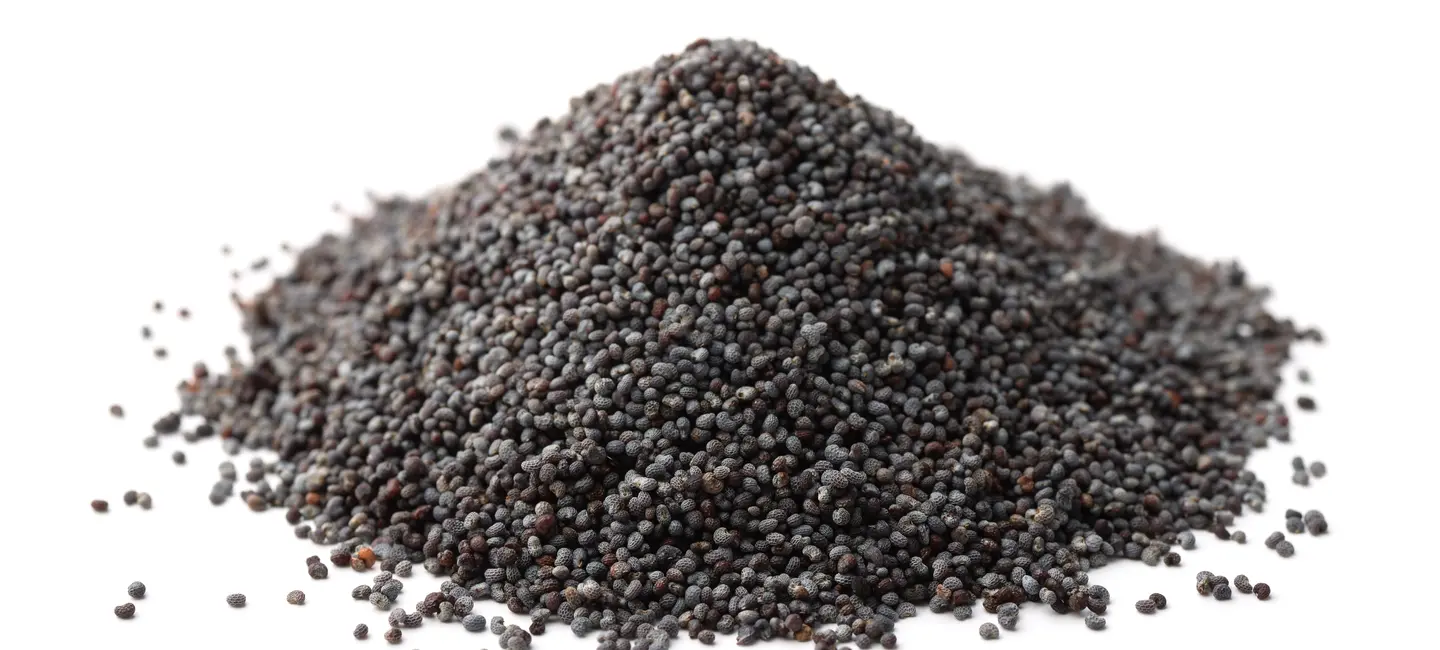
Poppy seed is the seed from the poppy plant (Papaver somniferum). It's used in cooking. The seed pod contains opium, a source of opiates such as morphine.
Poppy seeds don't contain opiates naturally, but the seeds can become coated with opiates during harvesting or by insects. Because of this, the amount of opiates on poppy seeds varies widely. Ready-to-eat poppy seeds have been processed to remove opiates.
People use poppy seed to diagnose an abnormal connection between the bowel and the bladder (vesicoenteric fistula). It's also used for cough, insomnia, and many other conditions, but there is no good scientific evidence to support these uses.
Is It Effective?
NatMed Pro rates effectiveness based on scientific evidence according to the following scale: Effective, Likely Effective, Possibly Effective, Possibly Ineffective, Likely Ineffective, Ineffective, and Insufficient Evidence to Rate.
- Diagnosing an abnormal connection between the bowel and the bladder. Taking poppy seed by mouth seems to be effective for diagnosing an abnormal connection between the bowel and the bladder called a vesicoenteric fistula.
There is interest in using poppy seed for a number of other purposes, but there isn't enough reliable information to say whether it might be helpful.
Is it Safe?
When taken by mouth: Poppy seed is commonly used as a spice or flavoring in foods. Foods containing up to about 50 grams of poppy seed can be eaten safely. Poppy seed is possibly safe when used in larger amounts as medicine, short-term. But eating very large amounts of poppy seed is possibly unsafe as it might block the bowels. Some people might also be allergic to poppy seed.
Drinking poppy seed tea is possibly unsafe. Poppy seed tea is made by soaking poppy seeds in water. When poppy seed is soaked in water, the morphine and other opiates on the outer surface of the poppy seed can seep into the water. Drinking this water can cause side effects or death due to the opiate content.
Special Precautions & Warnings:
Pregnancy and breast-feeding: Poppy seed is commonly used as a spice or flavoring in foods. But there isn't enough reliable information to know if poppy seed is safe to use in larger amounts as a medicine when pregnant or breast-feeding. Stay on the safe side and stick to food amounts.
Allergy to other plants: People who are allergic to hazelnut, rye grain, kiwi, sesame, or buckwheat might also be allergic to poppy seed.
It is not known if this product interacts with any medicines.
Before taking this product, talk with your health professional if you take any medications.
There are no known interactions with herbs and supplements.
There are no known interactions with foods.
Poppy seed is commonly used as a spice or flavoring in foods. But as medicine, there isn't enough reliable information to know what an appropriate dose of poppy seed might be. Keep in mind that natural products are not always necessarily safe and dosages can be important. Be sure to follow relevant directions on product labels and consult a healthcare professional before using.
Abou en Noum, Abu el Noom, Abu el-Num, Adormidera, Afyun, Ahiphenam, Amapola, Amapola Real, Anfiao, Aphioni, Aphukam, Bhainzi, Birkes, Blauwmaanzaad, Blue Poppy Seeds, Breadseed Poppy, Dormideira, Edible-Seeded Poppy, Garden Poppy, Garten Mohn, Graine de pavot, Hashhash, Herba Dormidora, Keshi, Khishkhash, Maankop, Maanzaad, Mak, Mak Lekarski, Mak Sety, Medicinal Poppy, Mohn, Oeillette, Oilseed Poppy, Oopiumjunikko, Opievallmo, Opium Poppy, Opiummohn, Opiumpapawer, Opiumvallmo, Opiumvalmue, Papaver somniferum, Papavero da Oppio, Papavero Domestico, Papavero Sonnifero, Papoula, Paragtarbuti, Pavot Officinal, Pavot Somnifère, Pavot A Opium, Pavot de Jardin, Pintacoques, Pioniunikko, Pionvallmo, Schlafmohn, Semilla de amapola, Slaapbol, Slaappapver, Small Opium Poppy, Small-Flower Opium Poppy, Uniko, Vallmo, Valmúafræ, Valmue, Valmue Frø, Vrtni Mak, White Poppy, White Poppy Seeds, Wild Poppy, Yanggwibi, Ying Su, Za Zang.
Information on this website is for informational use only and is not intended to replace professional medical advice, diagnosis, or treatment. While evidence-based, it is not guaranteed to be error-free and is not intended to meet any particular user’s needs or requirements or to cover all possible uses, safety concerns, interactions, outcomes, or adverse effects. Always check with your doctor or other medical professional before making healthcare decisions (including taking any medication) and do not delay or disregard seeking medical advice or treatment based on any information displayed on this website.
© TRC Healthcare 2024. All rights reserved. Use and/or distribution is permitted only pursuant to a valid license or other permission from TRC Healthcare.
